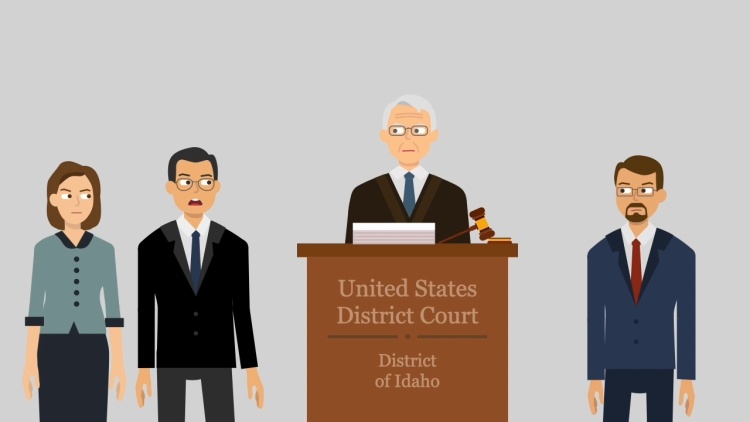Sackett v. Environmental Protection Agency
United States Supreme Court
143 S.Ct. 1322 (2023)
- Written by Angela Patrick, JD
Facts
Michael and Chantell Sackett (plaintiffs) purchased a vacant lot in Idaho that contained wetlands. In preparation for building a house, the Sacketts backfilled their land with dirt and rocks. The Environmental Protection Agency (EPA) (defendant) determined that the wetlands on the Sacketts’ property were protected by the Clean Water Act (CWA) and that the Sacketts’ backfilling violated the CWA. The EPA ordered the Sacketts to stop work and to restore the wetlands or else face penalties exceeding $40,000 per day. The Sacketts sued, arguing that the CWA did not apply to their landlocked wetlands. The EPA claimed that the CWA applied because the Sacketts’ wetlands had a significant nexus to protected waters. Specifically, 30 feet from the Sacketts’ property, a ditch fed into a nonnavigable creek that fed into Priest Lake, a navigable intrastate lake. After an initial procedural challenge by the EPA, the United States Supreme Court ruled that the Sacketts could pursue the lawsuit. On remand, the district court ruled for the EPA on the merits. The Ninth Circuit affirmed, finding that the Sacketts’ wetlands had a significant nexus to Priest Lake. The Supreme Court granted certiorari to review the merits.
Rule of Law
Issue
Holding and Reasoning (Alito, J.)
Concurrence (Thomas, J.)
Concurrence (Kagan, J.)
Concurrence (Kavanaugh, J.)
What to do next…
Here's why 907,000 law students have relied on our case briefs:
- Written by law professors and practitioners, not other law students. 47,100 briefs, keyed to 996 casebooks. Top-notch customer support.
- The right amount of information, includes the facts, issues, rule of law, holding and reasoning, and any concurrences and dissents.
- Access in your classes, works on your mobile and tablet. Massive library of related video lessons and high quality multiple-choice questions.
- Easy to use, uniform format for every case brief. Written in plain English, not in legalese. Our briefs summarize and simplify; they don’t just repeat the court’s language.





